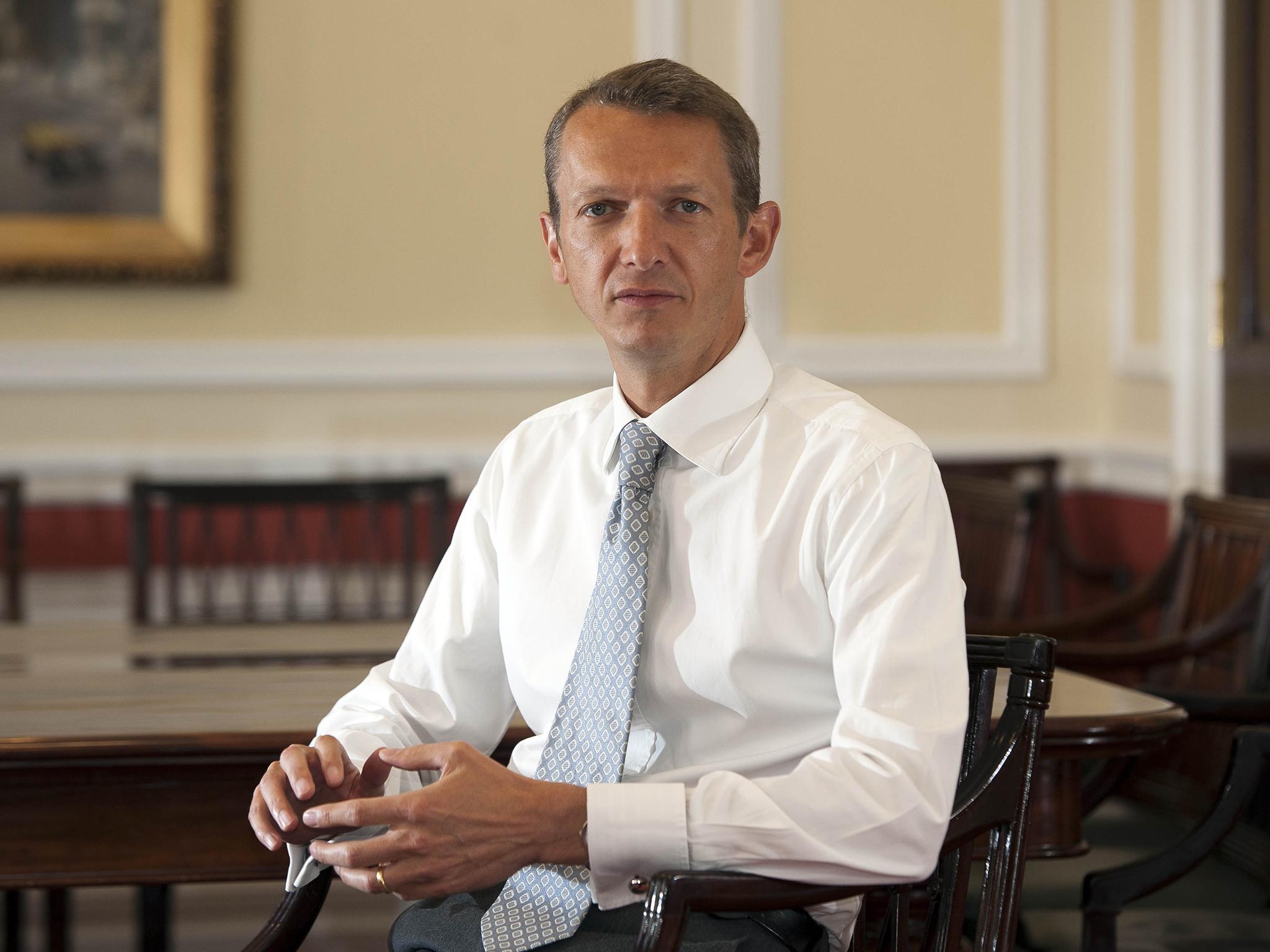Bank of England chief economist Andy Haldane calls for ‘muscular’ monetary easing next month
Mr Hadane’s dovish speech sent sterling down almost a cent against the dollar to $1.3346.

The Bank of England will need to enact “muscular” monetary stimulus next month to help the economy deal with the shock of Brexit, its chief economist has said, sending the pound down sharply against the dollar.
In the text of a speech released today Andy Haldane said the economy was “likely to slow, perhaps materially” in the wake of the surprise referendum result and that in his view “a material easing of monetary policy is likely to be needed”.
“This monetary response if it is to buttress expectations and confidence, needs I think to be delivered promptly as well as muscularly” he said.
He added: “By promptly, I mean next month.”
The Bank’s Monetary Policy Committee (MPC) surprised financial markets yesterday when it defied widespread expectations and failed to cut interest rates from their historic floor of 0.5 per cent, sending the pound instantly up to a two-week high.
But news of Mr Haldane’s dovish speech today (it was actually delivered on 30 June in Port Talbot but updated since) had the opposite effect, sending sterling down almost a cent against the dollar to $1.3346. It subsequently declined further to trade at $1.3284.
One member of the nine person MPC, Gertjan Vlieghe, voted in favour of an interest rate cut this month.
But Mr Haldane’s words confirm he too has little doubt about the correctness of further easing.
“Policy leadership and action has a particularly important role to play in buttressing expectations and supporting confidence,” he said.
He conceded that there is uncertainty about how much a further relatively small reduction in interest rates from their already historically low levels can do to spur demand.
But Mr Haldane explained: “If there is greater uncertainty about the effectiveness of tools of easing than tightening, then the monetary implication is clear: more should be done to cushion the effects of negative shocks, the like of which we have just seen, than positive ones.”
“Put differently, I would rather run the risk of taking a sledgehammer to crack a nut than taking a miniature rock hammer to tunnel my way out of prison.”
Mr Haldane did not specifically say that he was thinking of a cut in rates, merely referring to “a package of mutually-complementary monetary policy easing measures”.
Some City of London economists have speculated the Bank could restart its £375bn Quantitative Easing bond buying programme, possibly acquiring corporate bonds as well as Government gilts.
Others have wondered if the Bank could extend its Funding for Lending scheme, which rewards participating banks with cheap funding if they increase their lending to small firms.
The minutes of the latest MPC meeting suggest that Mr Haldane is one of several MPC members who will vote for more stimulus next month.
“Most members of the Committee expect monetary policy to be loosened in August,” it said yesterday.
As well as commenting on monetary policy, Mr Haldane's speech focused on the discrepancy between the aggregate UK economic recovery shown in the economic statistics and the different reported experience of many people.
He showed economic data suggesting that the national recovery in income and wealth since 2007 had mostly been enjoyed by London and the South East of England, those with houses and also older generations.
“This has been an uneven economic recovery, looking across regions, income and age cohorts,” he said.
“Large parts of the UK – many regions, those on lower incomes, the young, renters – have not experienced meaningful recovery in their incomes or wealth.”
Subscribe to Independent Premium to bookmark this article
Want to bookmark your favourite articles and stories to read or reference later? Start your Independent Premium subscription today.

Join our commenting forum
Join thought-provoking conversations, follow other Independent readers and see their replies